Uncategorized
Comprehensive guide: How to prepare, handle, and recover from wildfires
Wildfires can be devastating, but by taking proactive measures, staying informed, and having the right tools, you can significantly reduce the risks and ensure your safety.
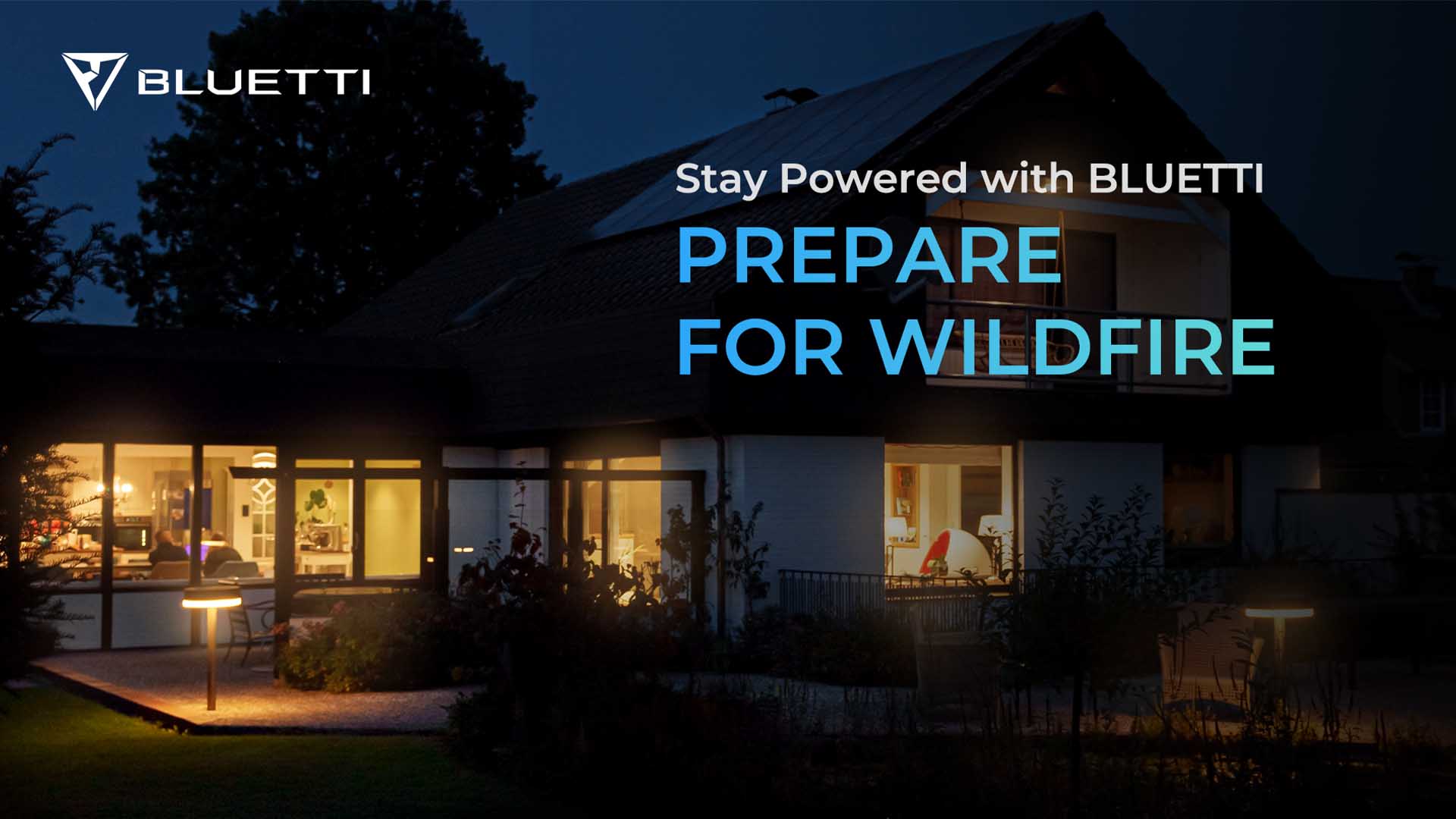
Just a heads up, if you buy something through our links, we may get a small share of the sale. It’s one of the ways we keep the lights on here. Click here for more.
Canada’s recent wildfires have already scorched about 4.3 million hectares (10.6 million acres), serving as a wake-up call for heightened attention to wildfire preparedness.
In recent years, the United States also has experienced record-breaking wildfire seasons, with an average of 22,946 wildfires per year between 2013 and 2022.
In 2021 alone, the state of California had 9,260 fires, making it the first of the top 10 states with the most wildfires. The below chart shows the rest nine states:
| Top 10 States for wildfires ranked by number of fires and by number of acres burned, 2021 | |||||
| Rank | State | Number of fires | Rank | State | Number of acres burned |
| 1 | California | 9,260 | 1 | California | 2,233,666 |
| 2 | Texas | 5,576 | 2 | Oregon | 828,777 |
| 3 | North Carolina | 5,151 | 3 | Montana | 747,678 |
| 4 | Montana | 2,573 | 4 | Washisngton | 674,222 |
| 5 | Florida | 2,262 | 5 | Arizona | 524,428 |
| 6 | Oregon | 2,202 | 6 | Idaho | 439,600 |
| 7 | Georgia | 2,139 | 7 | Alaska | 253,357 |
| 8 | Minnesota | 2,065 | 8 | Texas | 168,258 |
| 9 | Washington | 1,863 | 9 | Kansas | 163,982 |
| 10 | Arizona | 1,773 | 10 | New Mexico | 123,792 |
| Source: National Interagency Fire Center. | |||||
Nearly 45 million homes are adjacent to or intermingled with wildlands, putting over 72,000 U.S. communities at risk.
Preparing for wildfires is critical to ensuring the safety of yourself, your loved ones, and your property. This comprehensive guide will walk you through the steps to take before, during, and after a wildfire to reduce risk and ensure safety.
Preparing before a wildfire
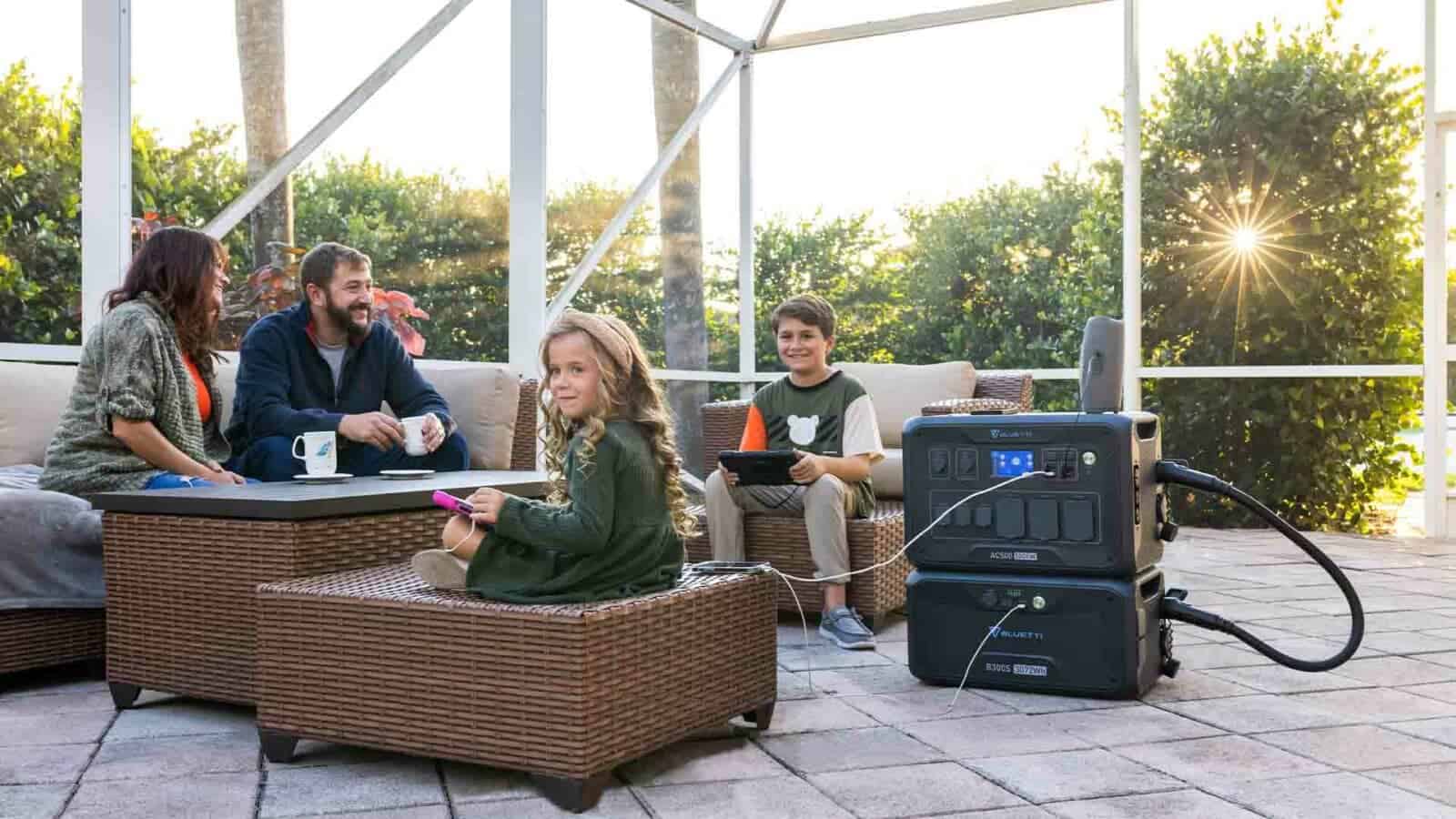
Stay informed
To prepare for wildfires, it is important to understand the risks in your area. Stay up to date on local weather conditions and fire danger levels.
Local news media, emergency management agencies, and official social media will always provide accurate information. Follow them and check the news regularly.
Consider signing up for emergency alerts and notifications from your local government or fire department. Familiarize yourself with nearby evacuation routes and community gathering points.
Prepare an emergency kit
In times of crisis, there is little time to prepare. That’s why it is important to have an emergency kit readily available.
Your kit should include essentials such as nonperishable food, drinking water, medications, first aid, a flashlight, batteries, battery-powered radio, and important documents.
Additionally, you should include personal protection items like N95 masks and goggles for toxic smoke handling. Keep your emergency kit in a fireproof and easily accessible place.
Invest in a portable power station like BLUETTI’s EB series (EB3A, EB55, EB70S) if you have a lot of devices that need to be charged.
These lightweight power stations offer ample power and multiple outlets, ensuring your devices stay powered during an emergency.
For long-term emergencies, BLUETTI’s AC200 series (AC200P, AC200MAX) and portable solar panels, such as PV120S and PV200, can meet your basic power needs for off-grid living in small cabins.
Develop an emergency plan
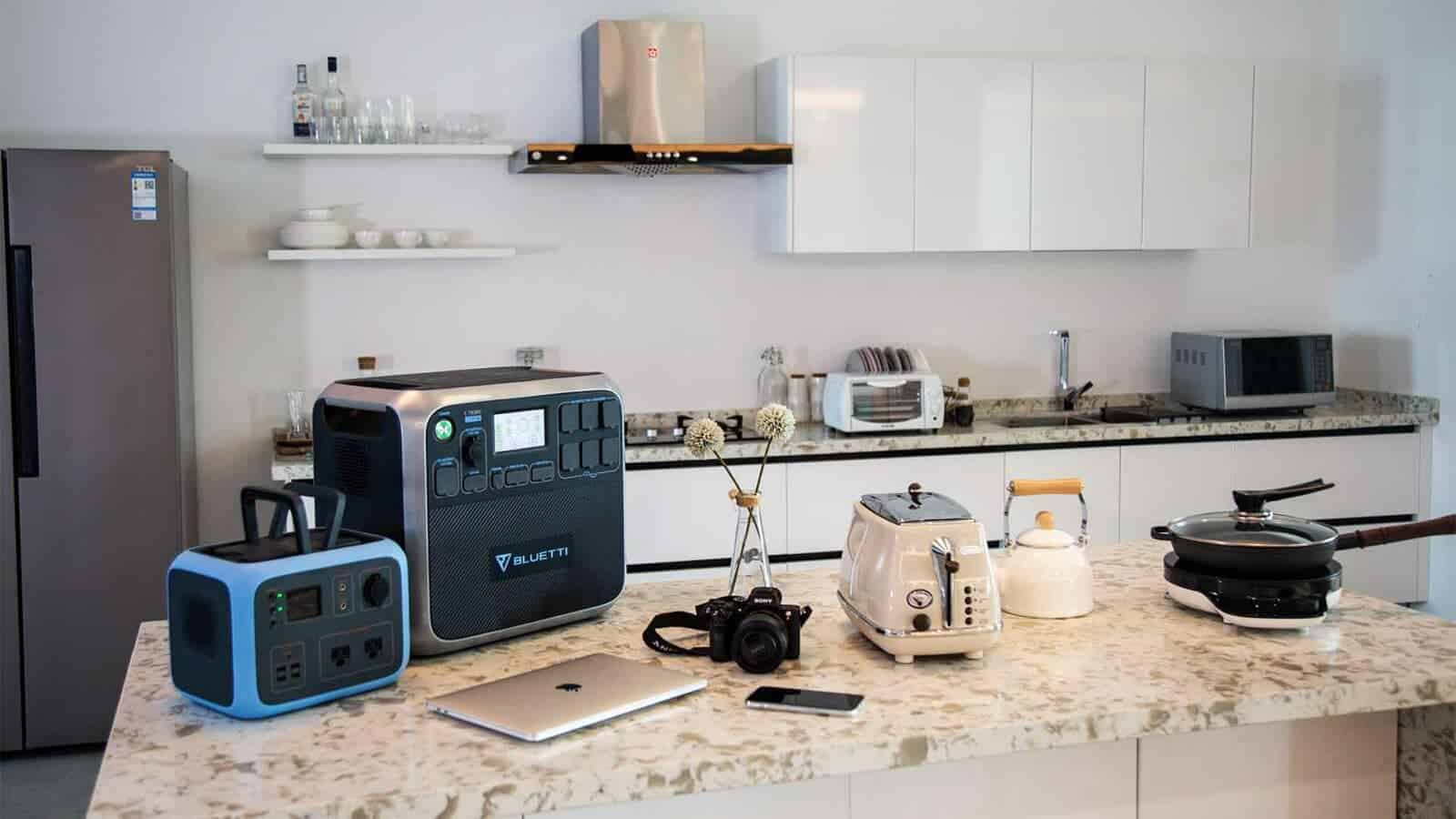
Wildfires can spread rapidly without warning. Making a detailed evacuation plan for your family can save lives in critical situations.
Practice multiple evacuation routes with your family and designate a meeting place outside the danger area where you can unite if separated. Don’t forget to make evacuation plans for your pets, as they are also part of your family.
Protect your home
Even if your home is far from a fire, flying embers can travel up to a mile and ignite your property. Take measures to protect your home by reducing highly combustible materials, such as wood and plant debris.
Consider retrofitting parts of your home with embers and flame-resistant materials and coatings. Clean chimneys and fireplaces regularly to prevent the accumulation of combustible debris.
Moreover, ensure your house number is clearly visible from the street for the convenience of emergency personnel. If possible, set up an outside source of water for firefighting purposes, such as a swimming pool, pond, or water tank.
Prepare a home backup power source
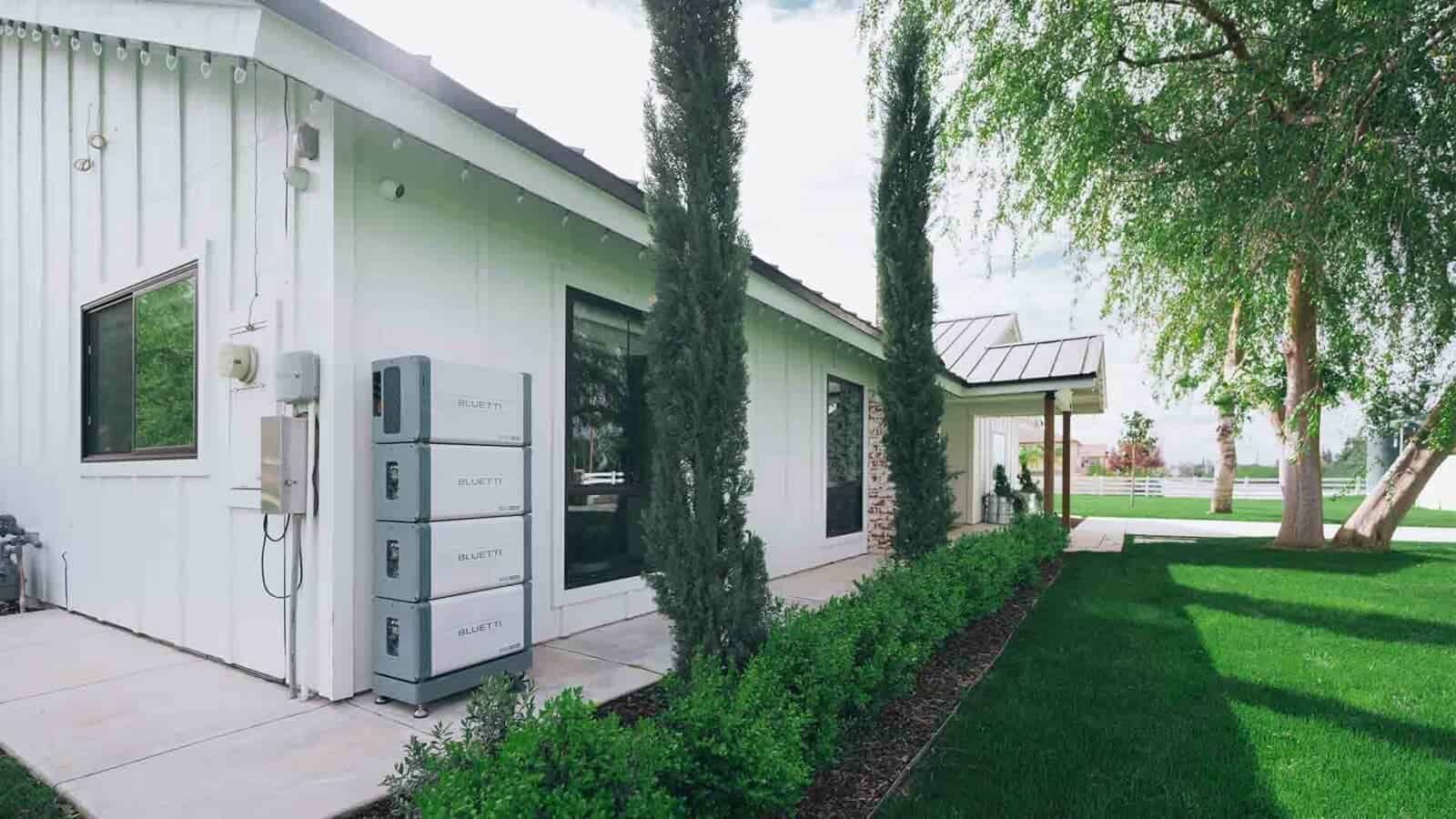
While you live far from wildfire-prone areas, you are still vulnerable to associated preventative power shutoffs and subsequent power outages due to a disrupted utility grid.
You may expect Wildfires can severely damage the power grid, resulting in extended blackout outages that can last for days or even weeks.
A reliable home backup power source is essential for households. BLUETTI’s AC300+B300, AC500+B300S, and EP900+B500 provide flexible backup power for various homes.
With high outputs and capacities, and a 24/7 uninterruptible power supply (UPS), these modular power stations can deliver a high power output to charge any home appliances.
For example, the AC300 can deliver up to 3,000W power and expand its capacity to a max 12,288Wh with B300 batteries. An AC300+B300 combo can run an 800W refrigerator for about 3 hours and a 40W CPAP machine for over 65 hours.
Using BLUETTI’s PV350 and PV420 solar panels, you can charge these powerhouses to get you through the outages in comfort.
What to do during a wildfire
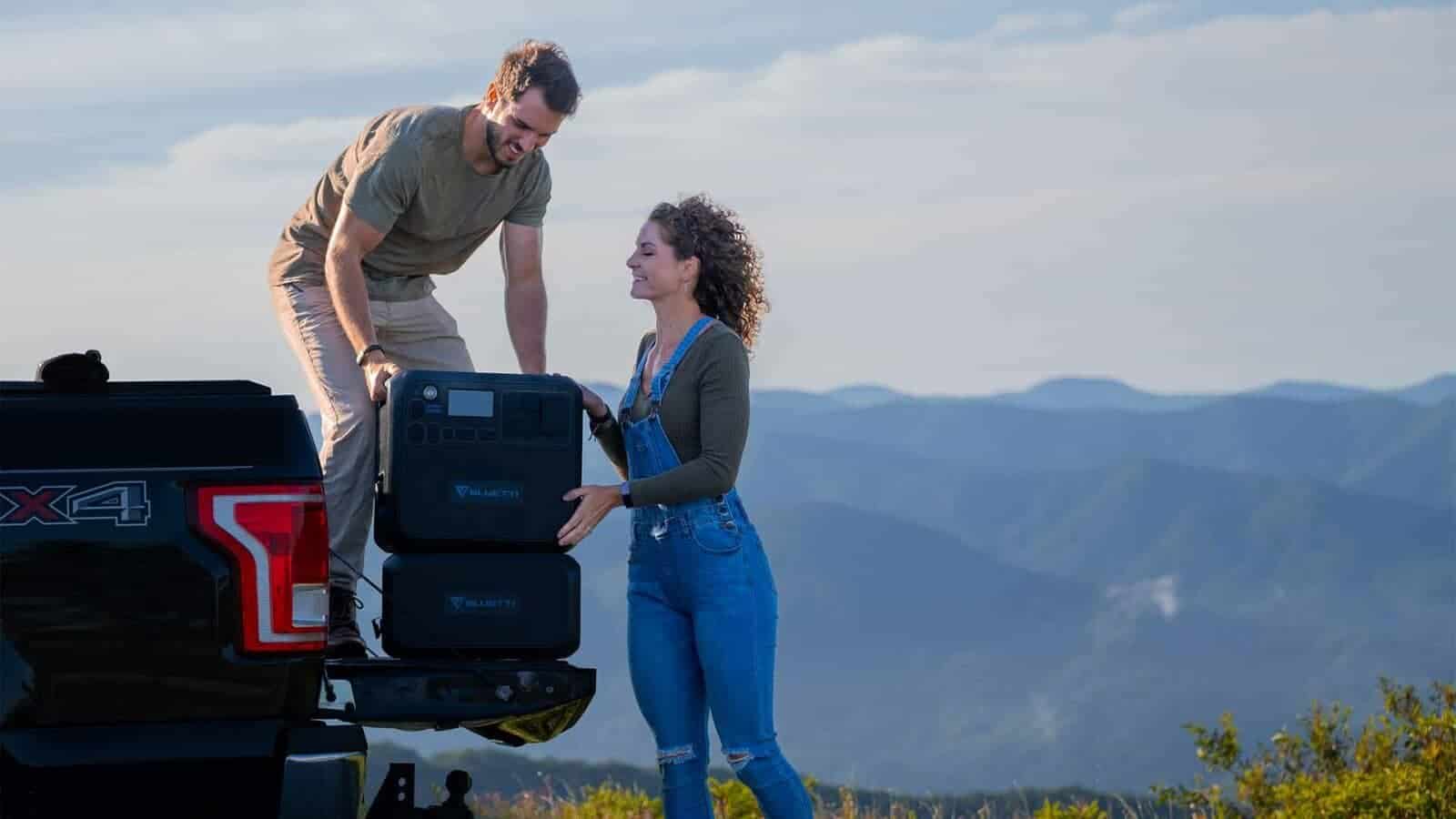
If a wildfire breaks out near your home, immediately follow evacuation orders and leave the area as directed by authorities.
Take your prepackaged supplies, including your BLUETTI backup power source, to sustain you for several days. Do not attempt to return until it is officially declared safe.
If you find yourself trapped or unable to evacuate, close all doors and windows to prevent embers from entering your home. Find a safe place indoors, away from windows.
Cover your nose and mouth with a wet cloth or blanket to avoid inhaling smoke. Cool down and listen to the radio and stay in contact with the outside while waiting for rescue.
What to do after a wildfire
Once the wildfire is contained, wait for official clearance to make sure it is safe to return. Check for any remaining hot spots or hazards, such as unstable structures or downed power lines, which could pose a risk.
Contact your insurance company to report the situation and initiate the claims process. Document the damage with photos or video to support your claim. To restore power in case of downed lines or an unstable grid, use your BLUETTI power solutions.
The AC200 series and EB series power stations can provide emergency backup power for essential equipment and devices, ensuring you have the power you need during the recovery process.
Wildfires can be devastating, but by taking proactive measures, staying informed, and having the right tools, you can significantly reduce the risks and ensure your safety.
About BLUETTI
BLUETTI has been committed to promoting sustainability and green energy solutions since its inception. By offering eco-friendly energy storage solutions for both indoor and outdoor use, BLUETTI aims to provide exceptional experiences for our homes while also contributing to a sustainable future for our planet. This commitment to sustainable energy has helped BLUETTI expand its reach to over 100 countries and gain the trust of millions of customers worldwide.
Have any thoughts on this? Drop us a line below in the comments, or carry the discussion to our Twitter or Facebook.
Editors’ Recommendations:
- BLUETTI to release AC180, making another breakthrough in portable power station area
- BLUETTI AC200P in 2023: still excellent in every way?
- BLUETTI trade-in program: your guide to saving money and the Earth
- BLUETTI launches EP900 & B500 home battery system in the US
Disclosure: This is a sponsored post. However, our opinions, reviews, and other editorial content are not influenced by the sponsorship and remain objective.



























